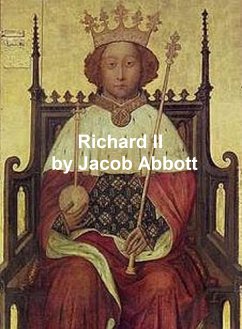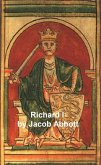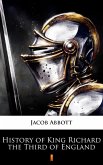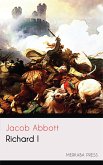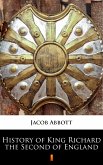According to Wikipedia: "Richard II (6 January 1367 - c. 14 February 1400) was the eighth King of England of the House of Plantagenet and the last of that house's main-line kings. He ruled from 1377 until he was deposed in 1399. Richard was a son of Edward, the Black Prince and was born during the reign of his grandfather, Edward III. At the age of four, Richard became second in line to the throne when his older brother Edward of Angoulême died, and heir apparent when his father died in 1376. With Edward III's death the following year, Richard succeeded to the throne at the age of ten... As an individual, Richard was tall, good-looking and intelligent. Though probably not insane, as earlier historians used to believe, he seems to have suffered from certain personality disorders, especially towards the end of his reign. Less of a warrior than either his father or grandfather, he sought to bring an end to the Hundred Years' War that Edward III had started. He was a firm believer in the royal prerogative, something which led him to restrain the power of his nobility, and rely on a private retinue for military protection instead. He also cultivated a courtly atmosphere where the king was an elevated figure, and art and culture were at the centre, in contrast to the fraternal, martial court of his grandfather. Richard's posthumous reputation has to a large extent been shaped by Shakespeare, whose play Richard II portrayed Richard's misrule and Bolingbroke's deposition as responsible for the 15th century Wars of the Roses. Contemporary historians do not accept this interpretation, while not thereby exonerating Richard from responsibility for his own deposition. Most authorities agree that, even though his policies were not unprecedented or entirely unrealistic, the way in which he carried them out was unacceptable to the political establishment, and this led to his downfall."
Dieser Download kann aus rechtlichen Gründen nur mit Rechnungsadresse in A, B, BG, CY, CZ, D, DK, EW, E, FIN, F, GR, H, IRL, I, LT, L, LR, M, NL, PL, P, R, S, SLO, SK ausgeliefert werden.

